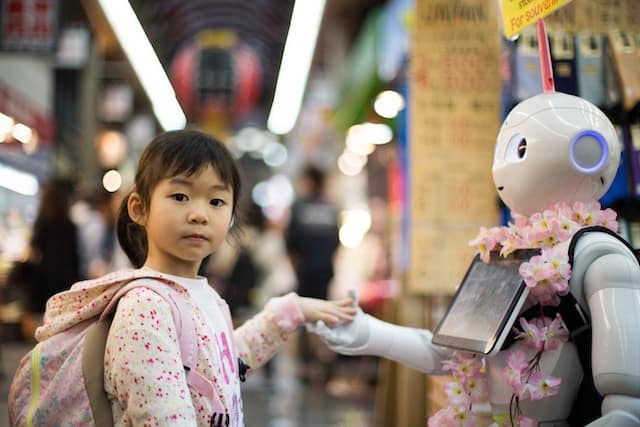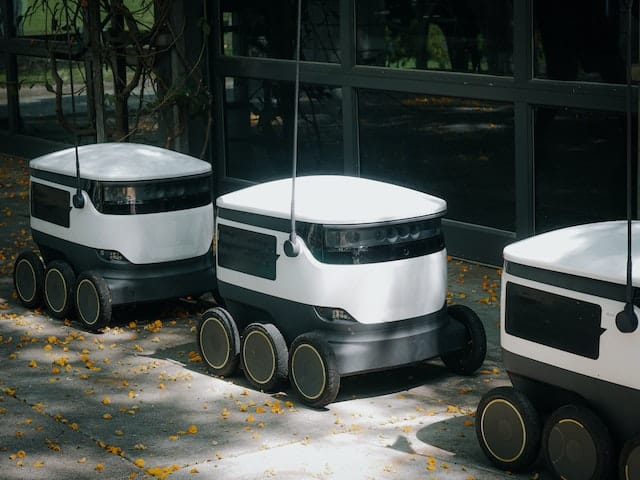The Impact of AI on Society and the Way We Live
Artificial intelligence, or AI for short, is a term you may have heard before. But what is it exactly? It’s like teaching a computer or machine to think and learn like humans do. And it’s changing our world in big ways. Let’s dive into the exciting world of AI and explore what it means for you and the impact of AI on society today.
Table of Contents
AI: A Friend in Your Pocket and More
You know Siri and Alexa, right? They’re examples of AI. They can answer your questions, tell jokes, and even help you with your homework. But AI is much more than just a handy assistant. It’s being used in cars, hospitals, banks, schools, and more. The possibilities seem endless!
Understanding Different Types of AI
AI can be sorted into three main types:
- Narrow AI: This type does one specific task, like playing chess or helping you choose a song. Most AI we use today is this kind.
- General AI: Imagine a machine that can do anything a human can do. Sounds like science fiction, right? It doesn’t exist yet, but scientists are working hard to make it happen.
- Superintelligence: This is even more futuristic. It’s the idea of a machine that’s smarter than all humans. It’s still just a concept, but it makes us think about big questions.
A Quick Look at AI’s History
AI may seem new, but it’s been around since the 1950s. It’s had its ups and downs, like a roller coaster. Sometimes, there was lots of excitement, and at other times, people lost interest. But thanks to more powerful computers and better ways to handle data, AI is now growing faster than ever.
AI in Action: Different Industries
Let’s see how AI is changing different parts of our lives:
Healthcare
Imagine going to the doctor, and a computer helps diagnose your illness. AI is making that possible. It can look at medical images and find diseases sometimes even better than human experts.
Finance
Have you ever heard of a piggy bank that can tell you how to save money? AI is creating “robo-advisors” that help people make smart money choices.
Transportation
Ever dreamed of cars that drive themselves? AI is making that dream come true. These self-driving cars might make roads safer and save energy.
Education
Schools are using AI too! There are programs that can make learning more fun and personal for each student. They adapt to your needs and help you learn at your pace.
Some Big Questions and Concerns
AI sounds fantastic, but there are some things we need to think about. What if robots take over jobs that people do? What about fairness? If AI learns from unfair or wrong information, it can make unfair decisions too.
And let’s not forget about privacy. Since AI needs lots of data to learn, we must be careful with personal information.
The Future and You
What does the future hold for AI? No one knows for sure, but it’s bound to be exciting. We might see AI that can do everything a human can do or even more. But we also need to be smart and thoughtful about how we use AI.
Here’s where you come in. You’re part of the generation that will live with AI and shape its future. By learning about AI, asking questions, and thinking creatively, you can help make sure it’s used in ways that are good for everyone.
Conclusion: A World Full of AI Wonders
AI is like a new frontier, filled with exciting discoveries and opportunities. From virtual friends like Siri to future cars without drivers, it’s opening doors to things we never thought possible.
But, like any powerful tool, AI must be used with care and responsibility. We have to think about how it affects jobs, fairness, privacy, and more.
You’re part of this amazing journey. Keep exploring, asking questions, and dreaming big. Who knows? Maybe one day, you’ll be the one creating the next incredible AI invention. The future is wide open, and AI is one exciting part of it. Let’s embrace the wonders and learn together as we journey into the incredible world of artificial intelligence!







